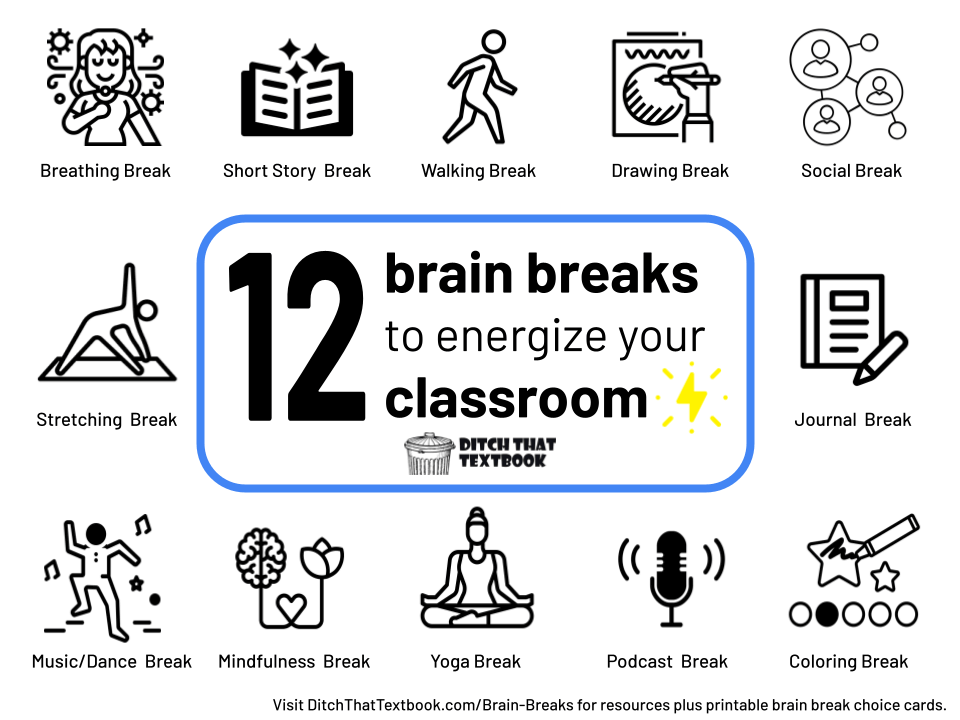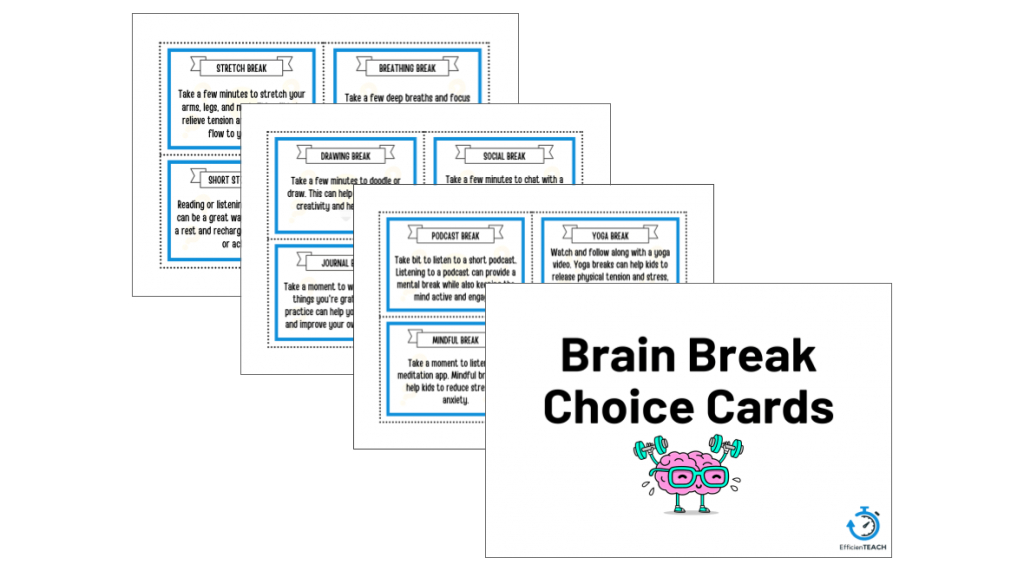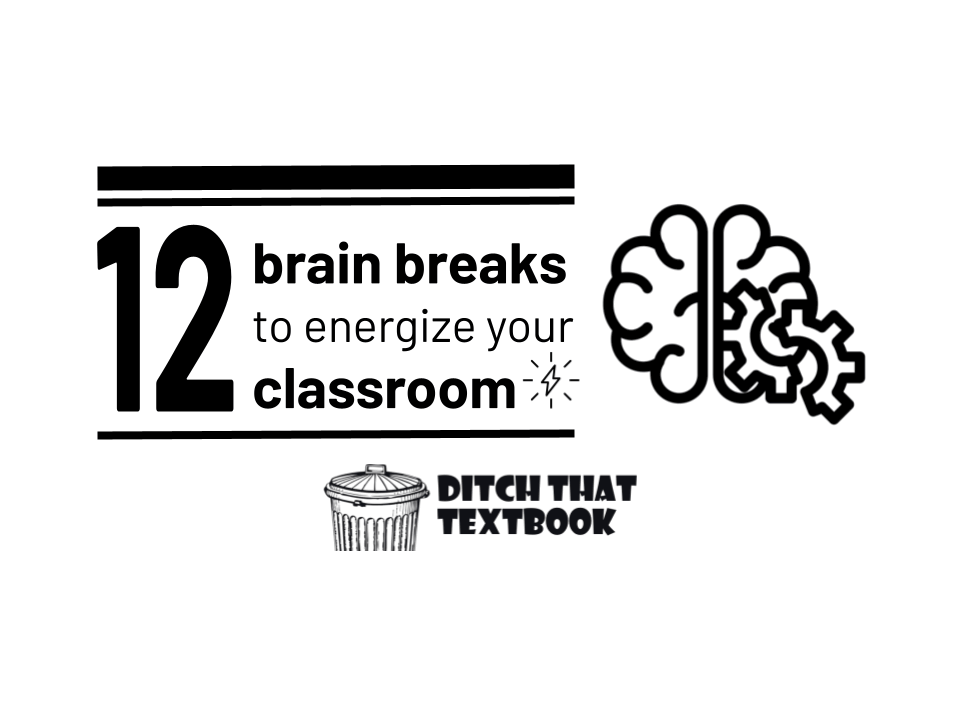
In class, our students sit. A LOT. It can be hard on our bodies and our minds.
(Want proof? Think of the last full-day professional development you had to sit through!)
Building brain breaks into our daily routines can allow our students to recharge and refresh their minds.
Research shows that incorporating brain breaks into your classroom routine can help maintain your students' focus and attention.
- Example: Leonardo G. Cohen, M.D., senior investigator at the NIH’s National Institute of Neurological Disorders and Stroke (NINDS) said, "Our results support the idea that wakeful rest plays just as important a role as practice in learning a new skill. It appears to be the period when our brains compress and consolidate memories of what we just practiced."
By taking short breaks, you can help your students maintain their focus and increase their productivity. These breaks can also provide an opportunity for students to stretch their legs and move around, which can improve their overall health and wellbeing.
Brain breaks can help reduce stress and anxiety in our students. School can be a stressor. We know that. Taking short breaks can help students release tension, improve wellbeing and refocus.
Thankfully, there are lots of ways to incorporate brain breaks into your classroom!
One idea is to have students do a quick physical activity like stretching or dancing for a few minutes. You can also have them do a mindfulness exercise like meditation or breathing exercises. Another option is to have them take a quick walk or do some light exercise outside. The key is to keep the activities short and simple so that they don't take away from instructional time.
Here are 12 brain breaks you can incorporate in your day.

🎁 BONUS: Scroll down for a printable pack of brain break cards to keep on hand. 🎁
1. Stretch break

Take a few minutes to stretch your arms, legs, and neck. This will help relieve tension and increase blood flow to your brain.
2. Breathing break

Take a few deep breaths and focus on your breath. This can help calm your mind and reduce stress.
Resource: Deep Breathing Printables from Canva
3. Short story break

Reading or listening to a short story can be a great way to give the brain a rest and recharge for the next task or activity.
Resource: Storyline Online Read Alouds
4. Walking break

Take a quick walk around the block or around your school. This can help clear your mind and increase blood flow to your brain.
5. Drawing break

Take a few minutes to doodle or draw. This can help stimulate your creativity and help you relax.
6. Social break

Take a few minutes to chat with a friend or colleague. This can help improve your social skills and reduce stress.
7. Journal break

Take a moment to write down a few things you're grateful for. This practice can help you reduce stress and improve your overall well-being
Resource: Journaling Challenge Bingo Template
8. Coloring break

Take our a coloring page and color fora few minutes. Coloring can be a relaxing and meditative activity that can help reduce stress and anxiety.
Resource: Mindfulness Coloring Pages from Canva
9. Podcast break

Take bit to listen to a short podcast. Listening to a podcast can provide a mental break while also keeping the mind active and engaged.
Resource: Six Minutes GZM Podcast
10. Yoga break

Watch and follow along with a yoga video. Yoga breaks can help kids to release physical tension and stress, improve focus and concentration, and promote overall well-being.
Resource: Yoga Poses for Kids from Canva
Resource: Yoga PE - Mind | 12-Minute Yoga For Kids
11. Mindfulness break

Take a moment to listen to a meditation app. Mindful breaks can help kids to reduce stress and anxiety.
Resource: The Mindfulness Teacher YouTube Channel
12. Music/dance break

Put on your favorite song and dance around for a few minutes. This can help boost your mood and increase energy levels.
Resource: Be Well Played Dance Breaks
What kinds of brain breaks have worked best for you? Share them in a comment below!



